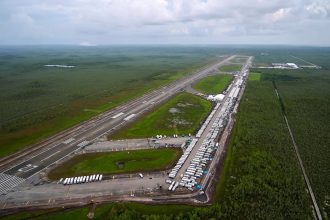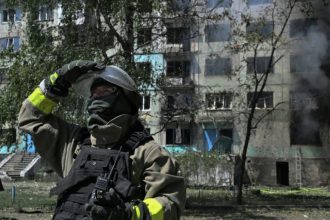Senior Process Engineer at Fluor Corporation in Houston, Texas, Femi Olorunnaiye, has urged Nigeria to embrace process intensification for its petrochemical and gas processing industries.
Olorunnaiye, who has over a decade of global experience spanning energy, petrochemical, and manufacturing operations, stressed that the technology was no longer a futuristic idea but a practical necessity for a sector under pressure to improve safety, cut emissions, lower costs, and maximise value from every molecule processed.
“Process intensification is not an option to debate; it is the way forward if we are serious about efficiency, competitiveness, and sustainability. We must do more with less. What this means is less energy, less footprint, less emissions, while delivering more output, more safety, and more reliability,” Olorunnaiye said in a statement shared with newsmen in Lagos.
Olorunnaiye stated that these approaches were acceptable decades ago when fuel was cheap and emissions were not a priority, adding that today, they are inefficient, costly, and environmentally damaging. He cited a refinery distillation section he had reviewed in the Niger Delta, which was running at nearly 35 percent above its intended energy use.
“Multiple flash drums, long reboiler piping, and sluggish control systems all contributed to wasted energy and reduced stability. Every inefficiency compounds another. When a tower takes hours to stabilise, when the reboiler heat duty runs below target, when control loops are slow, the plant bleeds money and increases its exposure to safety incidents.
”At its core, process intensification means collapsing separate steps into one, redesigning equipment to achieve higher transfer rates, and using compact, modular systems to deliver the same function at a smaller scale and lower energy,” he said.
Olorunnaiye pointed to examples already proven globally: reactive distillation, where chemical reaction and separation occur in a single column; dividing wall distillation, which replaces two or three towers with one; membrane separations that substitute energy-hungry distillation; and micro-channel reactors that deliver rapid conversion with minimal inventory.
“Instead of sending products from a reactor into a separate distillation tower, you let the reaction and separation happen together. The capital cost is lower, the heat integration is tighter, and the chances of leaks or failures go down. It is safer, leaner, and more efficient,” he explained.
He warned, however, that process intensification cannot succeed without matching improvements in instrumentation and controls. Because operations are more tightly coupled, disturbances propagate faster, leaving little margin for error.
He recalled a gas processing site where modular intensified reactors had been installed, but pressure and temperature transmitters were outdated and recalibrated infrequently. The result was unstable operation and repeated trips.
“The lesson is clear. Intensification demands sharper eyes and faster reflexes. Instrumentation is the nervous system of the plant. If it lags, the whole system suffers,” he said. Olorunnaiye stressed that this is especially critical as Nigeria works toward its declared goal of ending routine gas flaring by 2030.









